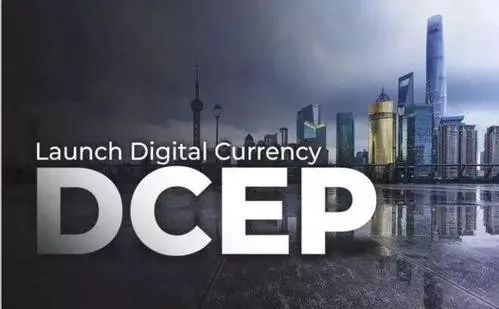The central bank's digital currency occupies the "C position" of the Davos Forum. Why is it popular among countries?

In this year's Davos Forum, blockchain and digital currencies are undoubtedly the focus of discussion. After 19 years of market demonstration and precipitation, this Davos Forum focuses on the emergence of blockchain in the financial field with a more objective and rational attitude. Far-reaching impact.
Perhaps due to the influence of the company's credit currency Libra and the government's sovereign currency DC / EP, the central bank's digital currency (CBDC) has become a hot object of discussion.
01. New currency system
BS Kohli, economic adviser to the governor of Punjab, India, said: "The physical currency is obsolete ." Mothanna Gharaibeh, Jordan's Minister of Digital Economy and Entrepreneurship, agrees, saying that beginning this year, Jordanians can no longer pay in cash. Government services, from taxes to hospital bills. They must use electronic payment systems such as bank transfers or mobile wallets.
- Cosmos founder Jae Kwon announces exit and moves to new project Virgo
- Featured on Twitter | BCH12.5% miner tax blocked, Bitcoin.com under Roger Ver withdraws support
- Take a look at the different perspectives of countries on digital currencies
In the context of the global digital economy, the circulation of physical currencies is restricted by many factors such as culture, time, and region, which leads to low efficiency in value transfer. Cross-border payment is a typical example. At the same time, physical currencies need to pass banks and institutions to indirectly circulate on the Internet. We have a stack of bank notes, which is more like a proof of assets, allowing us to use Alipay, WeChat and other tools to freely transfer transactions. More often, we can only see the changes in account balances. The transfer and settlement of cash is a matter between banks and payment institutions.

China is undoubtedly at the forefront of the world in the field of mobile payment. With the increasing popularity of blockchain cryptocurrencies and the prevention of financial projects such as Libra, governments of various countries have begun to redefine the form of currency.
02. Central Bank Digital Currency Toolkit
Regardless of the purpose of improving the competitiveness of the domestic fiat currency or improving financial inclusiveness, for any country, the issue of digital currency is a major decision, and each of these risks needs to be comprehensively considered in previous studies and In the process of advancement, trial and error and perfection are continuously implemented to reduce the risk of financial innovation within a controllable range.
In view of this, the Davos Forum has cooperated with nearly ten central banks, well-known economists and financial industry leaders to launch the “Central Bank Digital Currency Policy Maker Toolkit” (CBDCPolicyMaker Toolkit), which is a global Decision makers provide useful and practical development guidelines and risk-benefit assessment methods. This will be used as an important reference standard to encourage financial innovation in various countries and accelerate the implementation of central bank digital currency research and development.
03. Digital currency of the central bank of China DC / EP
China has a first-mover advantage in this field. As early as 2014, the central bank set up a special research team to conduct in-depth research on digital currency technology, system development, business logic, and legal issues. According to Mu Changchun, director of the Monetary Research Institute of the Central Bank , the central bank's digital currency (DC / EP) uses an upper-level operating system, that is, the central bank first exchanges DC / EP with banks or other operating agencies, and then these institutions exchange them with the public, rather than Like paper money, it is directly disclosed to the public by the central bank. The two-tier operation system encourages various commercial organizations to optimize the DC / EP technology and model innovation based on the existing IT infrastructure, human resources, and service system, and provide more flexible financial services to the general public. Eventually, it will screen for widespread acceptance in market competition. Popular model.
It should be noted that DC / EP is not an encrypted digital currency, and blockchain technology is not involved in the current technology implementation process. DC / EP as a currency is still a liability of the central bank. The centralized management method facilitates the government's control of the currency and prevents money laundering, tax evasion and illegal financing.

Secondly, DC / EP is in a state of coexistence with existing banknotes, and there is no conflict in the use of the latter. At the same time, it does not have much impact on mobile payment such as Alipay and WeChat , because Alipay and WeChat currently use RMB for settlement. After the central bank's digital currency was launched, it was only replaced with digital RMB, and the payment channels and scenarios have not changed. However, DC / EP wallet payments may quickly occupy a portion of the payment market.
The internationalization of currencies is becoming more and more obvious, and a group of leading Fintech companies in China have also accelerated their overseas market layout. Recently, Xiaomi, Ant, Tencent and Toutiao announced today that they have applied for Singapore Digital Banking License. As mentioned earlier, DC / EP will be exchanged by the central bank to banks or other operating institutions. These financial platforms may become DC / EP operating institutions. If you promote DC / EP to enterprises and institutions in such important global trading and banking centers as Singapore The use of EP will undoubtedly bring huge opportunities for these giants to deploy overseas financial markets.
04. "Digital Dollar" Plan
Following Libra, led by Facebook, Christopher Giancarlo, former chairman of the US Commodity Futures Trading Commission (CFTC), announced the launch of a non-profit with the chief innovation officer of the Commodity Futures Trading Commission Daniel Gorfine The Digital Dollar Foundation is organized to promote a digital, tokenized American currency, the "Digital Dollar" program.
At this Davos Forum, Christopher Giancarlo stated, "We are trying to encourage the next major innovation of the U.S. dollar: a tokenized fiat currency issued by the Federal Reserve System. This is a new form of dollar figures, along with In traditional fiat currencies, banknotes and reserves, digital dollars enjoy the same full faith and credibility of the US government as the central bank currency. "
He pointed out that the Digital Dollar project aims to support retail, wholesale, and international payments while ensuring scalability, security, and privacy. In terms of architecture, it is planned to adopt the same "two-tier operation system" as the digital currency of the People's Bank of China. That is, the central bank's digital currency is distributed to commercial banks, and then digital dollars are distributed to end users through commercial banks and "trusted" payment processors.
In addition, Christopher Giancarlo said, "As other digital currencies become more attractive, the status of the U.S. dollar may be challenged. The use of digital dollars in the United States will help alleviate these problems, and support the continued stability of the U.S. dollar. It is also crucial for the international currency of the world. "

It is difficult to judge whether the US dollar, which is settled as a global currency, can continue to consolidate its strong position in the form of a "digital dollar" in the global digital economy migration, but this is undoubtedly an inevitable choice. As Peter Andrew puts it, the greatest danger of turbulent times is not the turmoil itself, but still doing things with the logic of the past.
As of December 2019, many countries have made substantial progress in the development of "central bank digital currencies" or intend to issue "central bank digital currencies", including France, Sweden, Saudi Arabia, Thailand, Turkey, The Bahamas, Barbados, Uruguay, etc. Various studies have shown that many central banks around the world have made progress in the development of digital currencies, and "central bank digital currencies" may emerge from the cocoon in the near future.
We will continue to update Blocking; if you have any questions or suggestions, please contact us!
Was this article helpful?
93 out of 132 found this helpful
Related articles
- Blockchain technology fusion, traceability of the entire process is not a false proposition
- How much does Bitcoin rise in half? How will computing power and prices change? Take a look at the best reference indicators!
- Why does the world need anonymous cryptocurrencies?
- Learning | Blockchain Governance Design Framework: Prysm Wheel
- India releases draft national blockchain strategy, recommends RBI to issue digital rupee
- An overview of the development of 18 government-led blockchain industry parks in China
- Assistance to Hubei: Summary of donations from new financial companies on January 28






